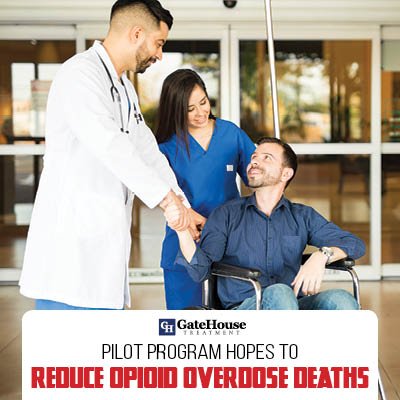
It’s no secret that the opioid epidemic is claiming lives faster than they can be saved. Despite the use of naloxone by citizens and emergency responders, there are still deaths every day. In Boone County, Missouri, there was a 35% increase in opioid overdoses from 2015 to 2016. Through the Opioid STR (State Targeted Response) Grant in Missouri, they have come up with the EPICC Program. It stands for Engaging Patients in Care Coordination this program helps those who are brought to emergency rooms for an opioid overdose to get into treatment programs.
Opioid Overdose Program
The initiative started as a 6-month pilot program in the St. Louis area; it did so well that the initiative is now being spread statewide. Between December 2016 and January 2018, there were 785 referrals to treatment that went through the EPICC program. This program takes a “medication first” approach. When patients come in for an overdose, they are given a dose of buprenorphine (Suboxone or Subutex) in the emergency room and a bridge prescription until they can get into treatment.
This isn’t to keep the patients on Suboxone or any other medication. It’s used as a method of harm reduction to prevent them from using opioids until they can get into treatment. Those who opt to continue taking the buprenorphine are given that option. Having the Suboxone can be the difference between life and death for people. Most opioid users will start going through the withdrawal process from the time of the overdose until entering treatment.
Patients are then paired with a recovery coach in the hospital after the opioid overdose. The peer recovery coaches are people in long-term recovery, meaning that they have been in the same position the patients are in. The peer recovery coaches are able to give the patients their experience strength, hope and to show the patients that there is a life after drugs and that recovery is possible. If the patient is interested in seeking substance abuse treatment, the person gets into a treatment center either that day or the following. The peer recovery coach then continues to check in with the patient at regular intervals of 30 days, 3 months, and 6 months after the overdose or admittance into treatment.
What Happens After the Opioid Overdose?
Aside from getting the patients into treatment, the hospitals also provide them with overdose education. They teach the patients how to administer naloxone and distribute naloxone to the patients. Sadly, not all people are ready to go to treatment or want to, even after an opioid overdose. Those that went into treatment and received medication were 11 times more likely to remain in treatment at the 30-day mark.
There are now multiple doctors at the hospital who can write prescriptions for buprenorphine. They have taken the waiver training to be able to prescribe buprenorphine; many hospitals couldn’t do this due to the training course for it. There are also several treatment centers that are now a part of the EPICC program and each treatment center has peer recovery coaches. The peer recovery coaches can assist those that aren’t yet working a 12-step program or who feel a 12-step program isn’t for them. It gives them hope that they can also come out on the other side of addiction.
Why is Peer Support so Important?
Having the local hospitals and treatment centers teaming up, it makes the referral process smoother for everyone involved. The peer recovery coaches were referred to as the “silver bullet” of the process.
“That coaching piece is absolutely critical,” Billings said. “Those peers really serve as the silver bullet, if you will. They literally respond to the (emergency department) when the patient is in an acute crisis to be that support that oftentimes patients don’t have. Without that layer, tons of patients just fall off the map. I don’t see it being successful without something very similar.” Therefore, at GateHouse we believe so firmly in case management. It’s very similar to peer recovery coaches, and many are certified recovery coaches.
The aspect of fellowship in recovery and being able to create the connections that aren’t there during addiction are critical components of why this program is working. When all of the entities involved in the treatment are working together to save lives, it can work.
If you or a loved one are struggling with opioid addiction, contact GateHouse Treatment today. We have been where you are and are here to help. Call us today at (855) 448-3588.
- Cymbalta Withdrawal: Causes, Symptoms, And Management - October 12, 2023
- Boredom in Recovery: 5 Tips to Avoid Relapse - October 6, 2023
- Overconfidence and Rehab: Avoiding Relapse - October 4, 2023




